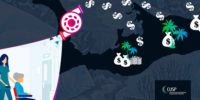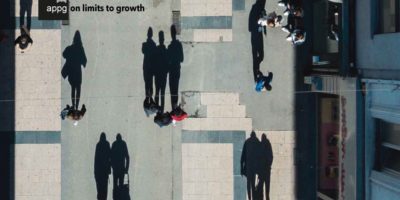
CUSP/CEEDR Seminar
The role and need for existential learning in the entrepreneurship learning process
Online, 1 February 2022, 2-3pm (GMT)
In this seminar, Prof Helle Neergaard and A/Prof Sarah Robinson from Aarhus University will present their case for introducing existential learning into the entrepreneurial curriculum. Following an introduction into the basics of their thinking, we will hear examples of how that can look in practice.
Typically, both policy makers and educators assume that students come equipped with ready-made ideas and that these simply need to be developed into enterprises—a long stretch from reality according to Helle and Sarah. While few students are confident enough to believe they actually could be entrepreneurs when they enter an entrepreneurship/enterprise class, most of them are ready to be persuaded that they may very well have what it takes. Counter to such a possibility though, educators often tend to jump straight into the idea phase. Now, by ignoring the pre-idea (build-up) phase, a lot of students who do not have ‘the’ idea yet end up thinking ‘this is not for me’—great potential for alternative business that gets lost in the process. Helle and Sarah believe that educators need to prepare their students to develop a deeper understanding of their own inherent potential and conceivably build a responsable entrepreneur mindset, equipping them also to critically evaluate their own ideas before taking next step(s).
To date, little research has addressed the existential challenges of an enterprising existence and in particular what students bring with them in terms of ‘personal luggage’; i.a. their personal experience in the world, from childhood to youth and onwards.
This take on entrepreneurial teaching aims to both expand and nuance the focus of educational policy to embrace the ‘whole person’. The existential approach adds people into the mix—it is about the role of human potential in developing ideas and for students to understand the opportunities that they are actually capable of creating—an indispensable feature for alternative business and social enterprise endeavours.
About
Helle Neergaard is Professor of Entrepreneurship at Aarhus University and currently Head of Section. Before joining Aarhus University, she spent several years studying and working in industry in the UK. She has fifteen year’s boardroom experience from the non-profit organization European Council of Small Business of which she was president from 2013-15. As president she founded the ECSB Entrepreneurship Education Conference, which attracts entrepreneurship educators and researchers from both Europe and further abroad. She was the principal investigator in the €3 mill. research project PACE (Promoting a Culture of Entrepreneurship). She was the 2018 co-recipient of the Sten K Johnson European Entrepreneurship Educator Award and in 2021 she was selected for the Distinguished International Scholar Award by the Irish Academy of Management. She has written more than 20 papers on various aspects of entrepreneurship education, but her main research interest is the entrepreneurial mindset. She likes to be provocative and untraditional in her approach to education and has won several best paper awards for her work in entrepreneurship education, most recently the 3E best conference paper for her article with Sarah Robinson “Entrepreneurship as Existential Learning”.
Sarah Robinson is an Associate Professor and Educational Anthropologist interested in the purpose of Higher Education and the future of the university. She is engaged with faculty development at the Centre for Educational Development at Aarhus University. Her ethnographic research spans curriculum reform, policy in practice, ethnographic methods, educator agency, and enterprise education as value creation. Sarah Robinson has a strong international profile and has published widely within educational research. Recently her research in enterprise education has lead to an exploration of the role and purpose of the university. This has resulted in publications such as The University Becoming; Perspectives from Philosophy and Social Theory (Bengtsen, Robinson & Shumar; 2020) Springer. Furthermore, Sarah has co-authored Teacher Agency; An ecological approach (Priestley, Biesta & Robinson; 2015). Currently, she is working with the development of a pedagogy for change-making that combines an exploration of academic identity with processes inspired by enterprise education.
WHERE
Online
WHEN
Tuesday, 1 February 2022
2-3pm (GMT)
CONTACT
The seminar is free to attend. Please register your attendance via Eventbrite to receive updates and joining details. For enquiries, please email events@cusp.ac.uk.



